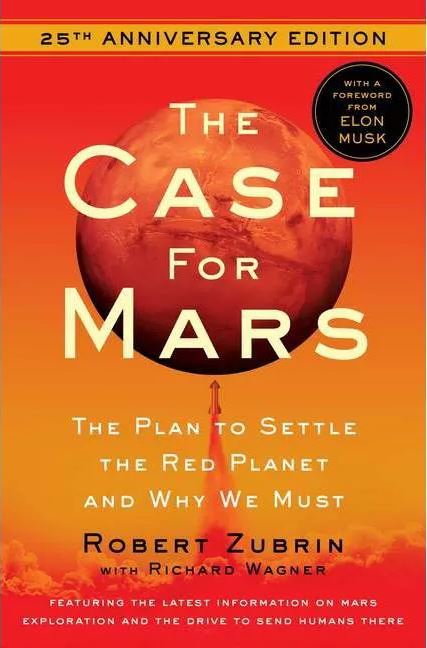
Zubrin looks at various propulsion systems including Project Orion style nuclear explosive drives and various fusion propulsion systems that have been seriously proposed. The section on how the galaxy could be colonised is also fascinating. The details and ideas presented are remarkable.

He also addresses the ideas of Gerard K O'Neil in The High Frontier and also Mining the Sky by John Lewis. The solar system sections covers similar ground to Zubrin's book on why and how Mars should be colonized and extends it to how the asteroids and other worlds could be used. The solar system spanning as looking at how and why mars and other worlds can be colonized and the type 3 part looking at how with really plausibly technology the galaxy could be explored.

The world spanning looks at what more can be done in orbit. The book is broken up into the Kardashev system for classifying civilizations, as Type 1 or world spanning, type 2 or solar system spanning and type 3 or galactic civilization. He has proposed numerous plausible propulsion systems for exploring space. Robert Zubrin has a masters in Aeronautics and a PhD in nuclear engineering and has worked as an aeronautical engineer so he has the ideal training to speculate seriously about what is possible in space flight in the next few decades and beyond. I recommend this book to all who are interested in knowing what their children, grandchildren and more distant offspring will be doing in the centuries to come.Įntering Space: Creating a Spacefaring Civilization (2000) by Robert Zubrin is a remarkable book the gives a remarkable view of how humanity can actually go into space. The book begins with the current state of space exploration: capabilities, missions, goals, technologies, etc., It then begins to discuss the near future, including missions to mars, returning to the moon, and then progressing along a logical path into the future of space exploration. (Also, I plan on going to this year's Space Development Conference in Florida, where Zubrin will speak). Having read his previous book 'The Case For Mars', I was expecting optimism and brilliance, and this more than delivered. All of which are warranted, as Zubrin is clearly the most visionary, optimistic, and forward thinking aeronautical engineer around. Zubrin blew my mind a number of times, and in later chapters it appears that Zubrin is blowing his own mind, based on the prevalence of conclusions he makes accentuated with exclamation marks in ellipses (!!!). This is the future of human civilization and it is astounding.


 0 kommentar(er)
0 kommentar(er)
